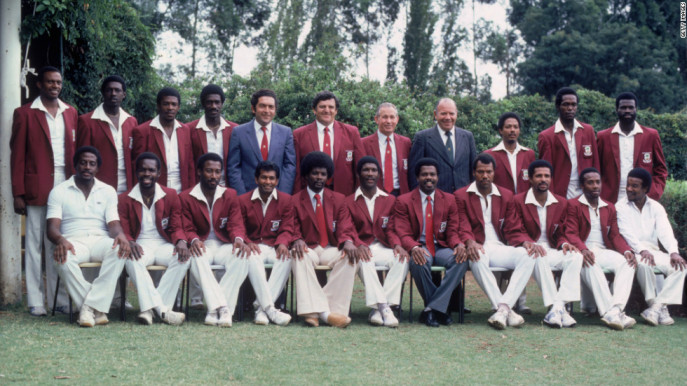
When you think of the glory days of West Indies cricket — the swagger of Viv Richards, the menace of Holding and Marshall, the unity under Clive Lloyd — one can’t help but ask: What happened? And more importantly, can the spirit and strategies of that golden era guide the revival of West Indies cricket today?
The Past: A Blueprint for Dominance
In the 1970s and 80s, the West Indies didn’t just play cricket — they defined it. Their success wasn’t accidental. It was built on clear vision, discipline, and unity.
Clive Lloyd’s leadership, Frank Worrell’s philosophy of pride and purpose, and later Vivian Richards’ fearless example created a culture that blended raw talent with professionalism. The team was a symbol of Caribbean excellence — eleven men representing many islands, yet bound by a single goal: to be the best in the world.
They trained hard, competed harder, and carried the weight of regional pride on their shoulders. They didn’t play for money or franchise fame — they played for West Indies.
The Present: Fragmented and Searching
Fast forward to today, and the West Indies team struggles to find consistency in any format. There’s no shortage of talent — from Nicholas Pooran’s flair to Alzarri Joseph’s pace — but there’s a visible gap in direction, structure, and belief.
Franchise cricket has created opportunities but also divided loyalties. Domestic structures are weak, player development is inconsistent, and the regional cricket boards often lack unity of purpose.
The West Indies still produce stars, but not teams.
Learning from the Past
So, what can today’s administrators, coaches, and players learn from the vision of the old masters?
1. Unity Over Individualism
Lloyd, Richards, and Worrell built teams that thrived on collective pride. They turned regional differences into motivation. The current system must rediscover that sense of shared Caribbean identity — where the maroon cap means more than any franchise jersey.
A rebranded, reconnected regional cricket culture — with shared values and stronger cross-island collaboration — could rekindle the unity that once powered the West Indies machine.
2. Discipline and Professional Standards
The old West Indies team combined flair with fierce discipline. Players were proud professionals long before central contracts existed. Today, the board must reintroduce high-performance environments — fitness benchmarks, mentorship programs, and cricket academies that nurture discipline alongside skill.
The vision must move from participation to performance.
3. Investment in Fast Bowling and Youth
Clive Lloyd’s greatest innovation was building around pace. The Caribbean is still producing quicks, but they need structured development. A fast-bowling academy — like the one Dennis Lillee established in Australia — could once again make the West Indies feared for their pace battery.
At the youth level, regional academies should emphasize long-form cricket to rebuild the art of patience and technique — qualities that once made the West Indies the kings of Test cricket.
4. Leadership and Mentorship
In the golden era, players learned directly from legends. That generational handover has faded. It’s time to reconnect the dots. Imagine players like Brian Lara, Curtly Ambrose, and Shivnarine Chanderpaul guiding the next wave, not just as consultants, but as integral parts of the system.
Mentorship isn’t nostalgia — it’s strategy.
5. A New Vision for the Modern Game
While old strategies inspire, modern cricket requires adaptability. The vision must be forward-looking — embracing sports science, data analytics, and mental conditioning. The goal isn’t to recreate the past but to modernize the mindset that once made the West Indies invincible.
The Fire Still Burns
Despite the challenges, the spirit of Caribbean cricket remains alive. You can still see it in a Joseph yorker, a Pooran six, or a Shai Hope century under pressure. What’s missing is the structure, leadership, and unity to sustain that fire.
Rebuilding West Indies cricket won’t happen overnight. But if the administrators, coaches, and players can blend the old vision of pride and unity with modern professionalism and innovation, the Caribbean can rise again.
After all, fire never truly dies — it just needs to be reignited.
Leave your thoughts below!





